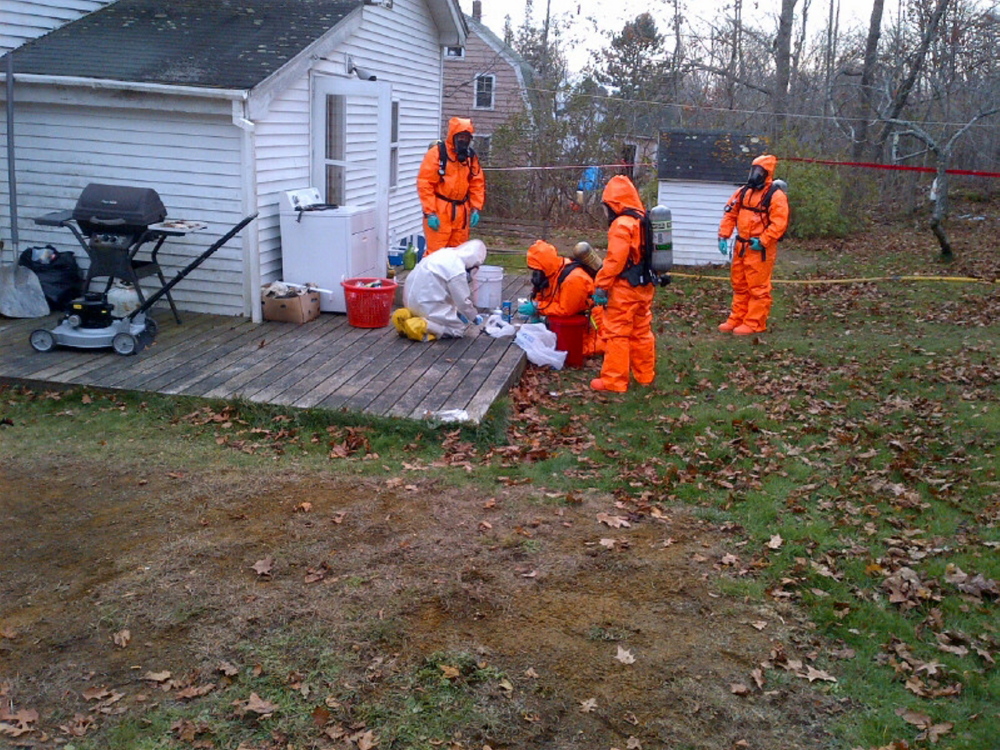The federal government is giving Maine $905,000 to help in the state’s fight against the manufacture and use of methamphetamine.
The state won the grant from the U.S. Department of Justice, Community Oriented Policing Services, which will pay the salary of four drug agents over two years as well as provide equipment, according to a news release from Gov. Paul LePage on Tuesday.
Maine’s grant – one of 10 disbursed by the Justice Department’s anti-methamphetamine program in the most recent cycle of funding – was the third-largest after West Virginia and California.
The awards totaled $6 million, the release said.
While Maine does not have the magnitude of methamphetamine use or manufacturing that some other states do, the Maine Drug Enforcement Agency has been working to keep the dangerous and addictive drug from getting a foothold in the state. The MDEA’s response team has so far this year responded to 20 methamphetamine manufacturing operations, the same number as in all of last year.
The number of arrests climbed from 32 in 2012 to 51 in 2013, according to the governor’s news release.
Maine’s task-force approach to drug investigations, drawing together state and local officers, helped win the competitive grant.
Aside from its danger to users, manufacturing methamphetamine poses a risk to those making it and to police officers, because the chemicals used can explode, MDEA Director Roy McKinney said in the release.
LePage tried to boost funding for the MDEA in the last legislative session in order to add 14 agents and increase the number of prosecutors and judges that handle drug crimes, especially those stemming from heroin use.
A revised proposal that shifted some of the funding to drug treatment programs had bipartisan support from the Legislature, but was not funded by the budget committee.
“Organized drug gangs are flooding the state with cheap heroin, and leadership in the Legislature has refused to provide the manpower law enforcement agencies need to prevent these criminals from addicting Mainers with this killer drug,” LePage said in a statement announcing the federal grant.
“This federal money will fund a minimal number of drug agents for two years, but we must address this issue on a state level with both the funding and resources I outlined in my drug bill.”
Rep. Mark Dion, D-Portland, House chair of the Criminal Justice and Public Safety Committee, said he worked with the governor’s staff in the waning hours of the last legislative session to restore funding for a scaled-back version of the governor’s drug bill that would have put 10 new agents on the street and eventually add new prosecutors and judges while also providing additional funding for the Department of Health and Human Services to pay for treatment.
The governor’s staff, he said, refused to accept the scaled-back proposal.
“I think the committee acknowledges we do have a crisis in terms of opiates and amphetamines, but even the more conservative members of the committee were convinced there had to be some balance in the strategy,” he said, referring to the need for treatment to stop the cycle of drug addiction and abuse.
Dion applauded the federal aid to fight against the spread of methamphetamines.
“Those states that have a methamphetamine crisis, what the data shows is, it went viral quickly and dominated the market rather rapidly,” he said.
The ACLU of Maine released a statement about the grant, saying the state can’t arrest its way out of the drug problem, but needs to invest in treatment.
Executive Director Alison Beyea faulted the LePage administration for its willingness to accept federal money for law enforcement but rejecting it when it came to expanding MaineCare under the Affordable Health Care Act, which would have included drug treatment.
David Hench can be contacted at 791-6327 or at:
Twitter: @Mainehenchman
Send questions/comments to the editors.



Comments are no longer available on this story